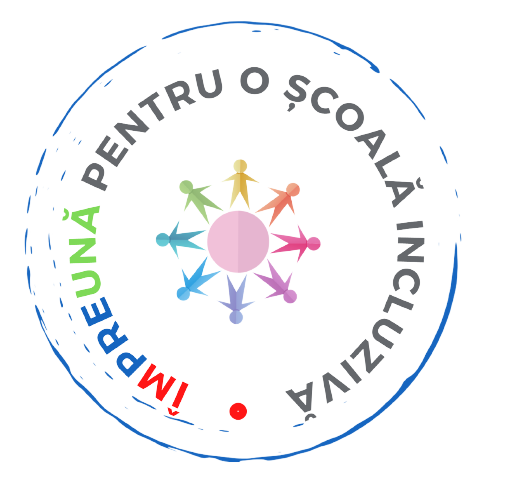
Update: Each of the five partner schools in Ilfov County have developed a curriculum for an optional school subject which they will apply in the following school year. These schools programs have the objectives of developing inclusive practices, promoting diversity, interculturality and civic implication among teens but also promoting nonviolence and gender equality practices within the group of students.
You can find all the materials here.
1. Promoting diversity and interculturality (Secondary School No. 3 Buftea)
The curriculum follows: the development of a socially active and responsible behavior, participating in the decision-making and problem-solving process in their community, cooperation between multiple and diverse groups, developing the intercultural dialog and cooperation. There pillars define the impact this optional subject can have at among the attending students.
The material is relative to the local specific, thus, concrete examples in regards to the intercultural experiences at the local level are used. They contain testimonies/information about the life of some people that are part of multiple types of ethnical and religious minorities, sexual orientation, social class, disabilities etc. Nonetheless, the materials will approach topics regarding intercultural relations at a local level or the integration of a minority.
2. Education for durable development (Secondary School Sintești - Vidra)
The material includes the following topics: economic development, socio-cultural dimension (quality of life, health, etc.), ecology, space, time, participation. In terms of key concepts, they are: globalization and social justice, nature and the environment, natural balance, biodiversity, the value of consumption, climate, change, raw materials and energy.
3. Education for active citizenship (Technological High School “Cezar Nicolau")
The curriculum aims to develop different types of skills such as: expressing yourself, critical thinking and argumentation, problem solving, teamwork and group decision making, conflict resolution, community research, influencing public decisions and evaluation. The material addresses the following topics: the rights and responsibilities of the citizen, political and social life at national, local and county level.
4. Education for active citizenship (Secondary School No. 1 Pantelimon)
Regarding the curriculum for the optional subject “Education for promoting nonviolence”, the intellectual product aims at the development of social skills (group relationships, cooperation), of active and constructive involvement at the community level. The impact of this option aims for students to develop the ability to communicate constructively in various social situations (awareness of individual and collective responsibility, acceptance of different points of view etc.).
Starting from the definition and general understanding of all forms of violence, the curriculum also aims at understanding interethnic conflicts and how they can be avoided. Thus, the tools used will reflect the local, county and national reality, being focused on non-formal education methods.
5. Education for gender equality (Secondary School No. 1 Tunari)
The curriculum on education for gender equality aims at developing social and civic skills in order to ensure the social and professional well-being of future adults. Given the fact that Romania continues to face gender pay gap, as well as a worrying increase in the phenomenon of violence against women, it is necessary for students to understand the principles of gender equality, namely the creation of a society with opportunities, rights, obligations for women and men.
The optional is even more important in the dynamics of the project, given the stereotypes and prejudices faced by Roma women, who are often exposed to multiple discrimination.
6. History, culture and identity of the Roma
From a historical point of view, the education of values and attitudes is a topic of concern to every society and historical ages to formulate the base of a system of values that will give its identity, resistance and solidarity.
The hate-speech against the Roma community is of 2 types: (1) that of ignorance, ignorance of history and misunderstanding of diversity and (2) categorical speech against the Roma, not necessarily from an ethnic perspective, but rather as a group perceived as deviant.
The material (developed by Valentin Negoi) will be addressed to those who have feelings of hate against the Roma that were caused by the realities that the Roma community had to endure, lack of empathy but also Roma students who do not know their history.
The material approaches the following topics: the appearance of the Roma in Romania, the Roma or Gypsy debate, the enslavement of the Roma in Romania, the emancipation of the Roma in the interwar period, the Holocaust of the Roma, the assimilation of the Roma in the interwar period.

